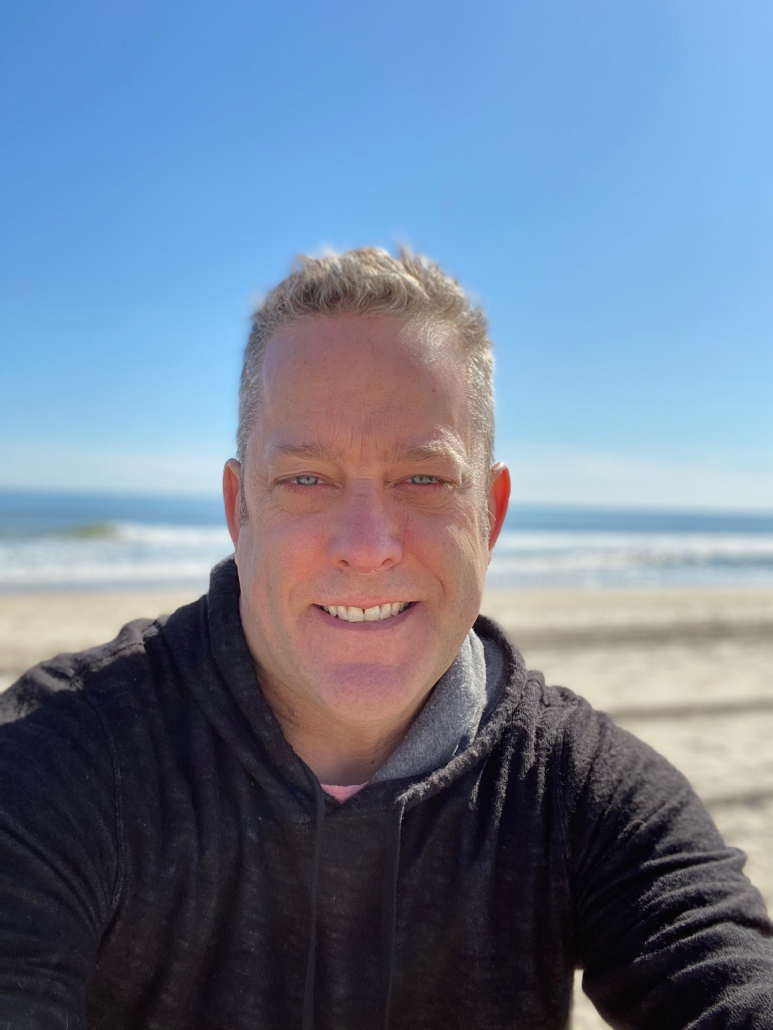Thank You, 10 is an interview series brought to you by Audition Cat, an upcoming app with career management tools for the professional auditioning performer. Each article interviews an industry professional with a different experience and opinion about what the future of auditioning looks like. Through these conversations, we hope an image will appear about what’s next for the industry, and what it aspires to be. Have someone you’d like to be considered for an interview? Reach out to us Facebook, Twitter, or Instagram.
Michael Goddard

Pronouns: he,him
Profession: Talent Agent, CGF Talent, founded January 2012
Biography Questions
Who are you? What’s your artistic background / what started your journey into the arts?
Michael Goddard. After studying Marketing in college, I started performing and acted professionally in Musical Theatre for 16 years. I did Broadway, National Tours, a European Tour, a Cruise Ship and many regional theaters.
When did you set out on your current career path?
After that I started in the agency business and have been an agent for 15 years since 2006. I always knew that becoming an agent would be a great marriage of my love for the art and my degree and understanding of Marketing and Business.
What is your “mission statement” as an arts professional? What drives you to continue in this industry?
As an arts professional I strive to help make the dreams come true for my many clients. I’m extremely passionate and active in figuring out goals and dreams and creating opportunities for actors to walk into the right rooms. I love when the business works correctly like a machine and allows everyone to do their jobs in the ways that they know how.
Within your artistic profession, what other industry roles do you work with most closely?
In my profession as an agent, we work closest with Casting Directors in order to create the opportunities for our actors to audition for projects. We work closely with actors who we represent, and we work closely with General managers and producers to come up with the best deal possible for our clients.
What do you wish was more widely understood about your profession?
What I wish was more widely understood is that having an agent isn’t a guarantee invite into audition rooms. It’s the actors job to always deliver in the audition room, to gain fans and bring their best work into every opportunity. It’s my job to build business relationships with the casting directors and gain trust so that I can get you in the rooms.
Audition Industry Questions
In your experience, what is the most common pitfall that actors make with auditions?
Biggest pitfalls that actors make with auditions is when they self-sabotage the audition, they start to do the casting director’s job and talk themselves out of the roles. They lose confidence and belief in themselves and that can be seen so clearly from the other side of the table.
Let’s talk about self tapes! Self tapes have become more and more common for auditioning actors, even more so during the pandemic. What do you like about self tapes? What do you dislike about them?
I like good self-tapes and I dislike bad ones. I like that the actor has the chance to “get it right” on their own time, but I don’t like that there isn’t an opportunity to show your authentic self like when you used to walk in the room and really share your energy with casting directors and directors.
As self tapes become more and more prevalent in the industry, for your profession, what are the main differences between in-person and virtual auditions? What advice do you have for actors who have less experience with virtual auditions?
My adivce: Get out of your head. Give a full out performance of that character as you would do on your opening night or shoot date. Don’t keep thinking about what you think that the casting director or director wants, and just give the performance.
If there was one piece of advice you’d give to any actor right before an audition or recording a self tape, what would it be?
Show what makes you special not what you think they think is special.
How do you expand your “talent rolodex”? When you interact with a performer for the first time, what inspires you, and what are you looking for in this initial interaction/audition to convince you to bring them back?
I’m looking for an actor who truly knows who they are and is so comfortable in their own body. To see an authentic artist is so inspiring and makes me excited to see what may be next for them.
Looking to the Future Questions
What excites you about the future of the arts and auditioning in particular? What are your concerns?
I’m most excited about arts and auditioning coming back and having more in person opportunities. The concerns I have are that many of the self-taping opportunities have been a reliable and successful way of auditioning. This can mean that self taping will probably be a larger part of our future than it was in our past. Making art and auditioning is a collaborative experience so I’m excited about people making art in this world today as we’ve continued to process and experience so much life in 2020 and 2021. I’m excited about opening the opportunities to be inclusive of all actors and telling stories that have never been told.
Post-Pandemic, how prevalent do you think virtual auditions will be / what role will they play in the day-to-day casting process? Are there aspects of virtual auditions you’ve found that you prefer?
Virtual auditions will definitely continue to be a part of the auditioning process. People just need to get used to it, but nothing beats an in person meeting to really understand the energy of the artist. Also direction and playing is always better in the room.
Self Tape setups are a financial and technical obstacle for many in our industry. For those who either can’t afford or don’t feel confident in the technical knowledge to use self-tape equipment, what advice can you offer to give them the best audition?
It doesn’t take a lot of money to make a good self tape. It takes a lot of skill and brains. Figure out the lighting, figure out a background and figure out the sound. This can all happen with an iphone. Just do it smartly. The excuse of money isn’t necessary (although it can be helpful) to create a great self-tape.
If you could rebuild the audition process however you’d want, what would it look like?
If I could rebuild the audition process — it would be me suggesting my actors for the jobs and then they would get them. That would be my most favorite process ever!
The arts industry has inherent barriers to entry including but not exclusively race, socioeconomic status/background, gender, disability, and more. How do you think the industry should evolve to make it a more accessible, equitable, and intersectional space for all? Especially how can we apply this to the audition process?
The Arts industry needs to focus on telling new stories, creating new heroes and really finding the artists who are ready to tell them and create them. Marketing and Business decision makers in the arts need to understand that there is a business and an audience for all of these different stories. Expand their views and ideas and the industry as a whole will be very surprised, and will thrive like never before.
